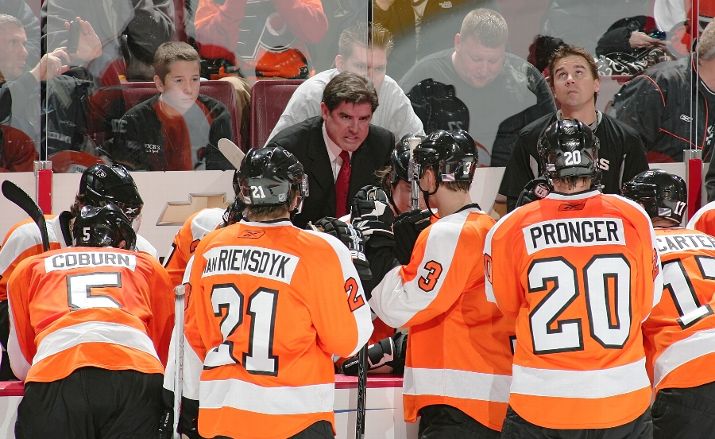by Coach K, AllHabs.net
SAINT-LAZARE, QC – Some would contend that a hockey team should be comprised of the most talented players available. In some circumstances that may be true, but the great teams of our times have a combination of both talented and character players. Talent makes teams good, while talent and emotion makes them great.
On Thursday night, we watched the Montreal Canadiens give, in my estimation, their most half-hearted effort of the season against the Nashville Predators. Although the Predators are by no means a weak hockey team, the Habs, given their recent success against top level teams in the Eastern Conference, should have been a much more rigorous opponent.
So why the let-down? Some would contend that the emotional high coming of a solid 3-0 victory on Tuesday versus the Philadelphia Flyers led to the Canadiens heartless effort. Other simply say it’s fatigue (yes, there’s that word again twenty-plus games into the season.)
Many former and current NHL coaches say the game of hockey is 20 per cent talent, 80 per cent emotion and effort. Successful coaches always find a way to bring up the emotion level of their players, regardless of their opponent. It is also the case amongst teammates. With the constant ebb and flow of players from team to team in today’s NHL, many players who switch from the Eastern Conference to the Western Conference can help invigorate their teammates. Stories about previous playoff wars and regular season shenanigans often are beneficial to getting players ready for an opponent.
And excellent example of this, in my estimation, were the actions during and after Tuesday night’s loss by the Flyers against the Canadiens. While some would consider in goonery at its finest, Coach Peter Laviolette was doing what all good coaches do when they are aware of their upcoming schedule. He proceeded to send some of his less-talented, more physical players on the ice during a late Philadelphia power-play. While the Flyers were emotionally disconnected for almost the entire game, and showed it with their effort, Laviolette did this to try and rile his players up for the next battle between the two clubs, set for Monday night at the Wells Fargo Centre in Philly.
Once the game was done, and the locker rooms were filled with microphones and cameras, it was Captain Mike Richards turn to pass on the coach’s message to his team and their opponent. Richards made some strong remarks towards Canadiens’ defenseman P.K. Subban, accusing him of lack respect towards his opponents and warning of repercussions in the future if his antics didn’t change. Although Richards ill-will towards Subban may be legitimate, his comments should engage his teammates to play with more emotion and effort, further instilling the message sent by Laviolette in the latter stages of the game.
On many occasions during post-game banter by players and coaches, they repeat cliches and give us the “politically correct” reaction to different situations. It is, however, important to use those opportunities to get a fire brewing in the belly of your players. An example of this may have been required from Canadiens’ Coach Jacques Martin prior to Thursday’s game. With the return of Sergei Kostitsyn, a player who Martin thinks has a lower than standard work ethic for his liking, Martin could have used his media scrum to get a message out to his players to get their emotions brewing. And example of this would have been to say, “This is a chance from our boys to show Sergei what he is missing now that he’s gone.” Or “Tonight, we’ll find out who the better Kostitsyn brother really is.”
Simple comments like these could get Andrei, Sergei’s older brother, to perhaps give a bit of a stronger effort in an attempt to show up his sibling. That, in turn, may have also helped Scott Gomez. Even if he was invisible in Thursday’s match-up, a more engaged AK46 may have opened up more opportunities for a struggling Gomez. And while a brotherly competition might seem childish, hockey is a game. Throwing a little fun competiton goes a long way to getting teammates involved emotionally.
X’s and O’s are important when developing hockey skill and formulating strategy, but emotion is what hockey players need in order to execute. When coaches send players to the press box as healthy scratches, it enrages players. The next time players get in the lineup, they give a better and more emotionally driven effort, in order to stay in the coach’s “good books.” Emotion goes a long way in this game, and it’s everyone’s responsibility to get their team aroused, especially the coaching staff.
(Featured image by Len Redkoles / Getty Images)
